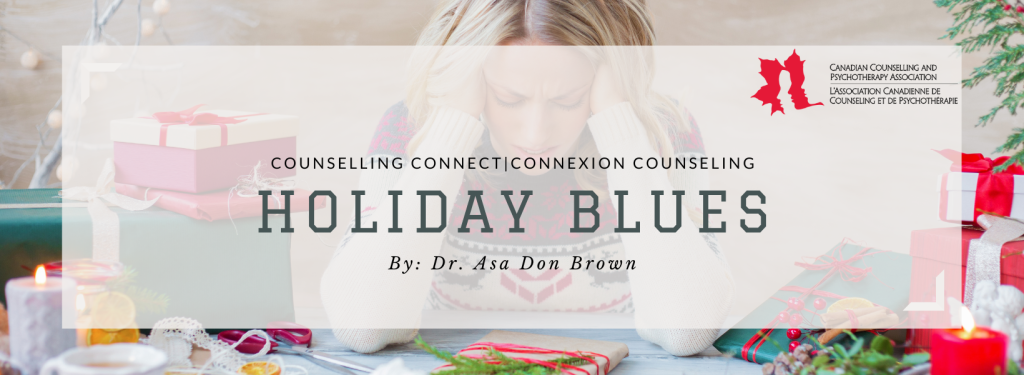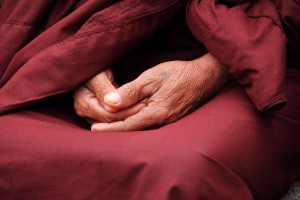
The very mention of the word holiday can leave an individual feeling the blues. According to the media, the holidays are suppose to be a time of cheerfulness, merriment, celebration, family and friends, but for so many, the holidays are not that picturesque. Rather, the holidays may feel much more sinister, bleak and intolerable. The holidays may be filled with memories of heartache and heartbreak. It may be a time that is vividly
caked with memories of the past good and bad, but for some reason the bad often outweighs the good.
The blues do not have to occur because of some heavy weighted trauma or loss, however this does have a bearing on many lives. The blues may be related to the season itself. They may represent the lack of family and friends. It may be fostered by feelings of rejection and experiences of the past. It may be stimulated by our perceptions and beliefs of our personal worth. They may be fueled by the media’s idealistic image of the holidays
and ours may not match that perfect snapshot. The blues are indeed the grinch of emotions and feelings taking away our right to experience authentic happiness. So what is it about the holidays that causes you to feel the blues? Are the holidays a reminder of good times or the bad ones? Have the holidays been masked by something egregious or reminders of something that you loath? What is it about the word that causes
you angst and emotional indigestion? For many, these times of festivities, celebrations, and reaction. You would think that the holidays would represent the same for all individuals, but you must take into account events leading up to the holidays; the holidays; and the biopsychosocial environment of the individual.
Life is not perfect and nor are the holidays. For you, they may represent something of an egregious nature. It may be a reminder of a particular loss or traumatic experience. There may be financial burdens associated with the holidays and obligations that make it difficult to truly celebrate. As a collective body of people, we have a particular ideological perspective around the holiday and the celebrations therein. This season may
not represent a time of immense pleasure enveloping ideas like peace, joy and love, rather they may be filled with a sense of disconnect, displeasure, unhappiness, misery, obligation, and anger.
The holidays often fuel a sense of despair, sadness and overall sense of dreariness. The duration and intensity of these states may vary depending on one’s personal ability to prove resilient, the insulating factors for the individual, and protective factors that ensure their safety and wellbeing. Please note, if an individual is finding it difficult during the holiday, it may be important to encourage them to seek out care. A few of the typical signs associated with the blues include:
• A change in one’s daily routine
• Avoiding being around others
• An inability to concentration or focus
• Personal changes in daily care and hygiene
• Increased irritability or depression
• Expressions of worthlessness
• Personal changes in appetite or diet
• An increased use of recreational drugs, alcohol or prescription drugs
• The loss of pleasure and personal desire
• The rejection of friends and family
It is also important to be aware that mental health issues can exacerbate one’s feelings of loneliness, sadness and despair. For individuals who have mental health concerns, it may be important to reach out before the holidays and to follow through with a mental health practitioner. The holidays are often known to exaggerate and intensify feelings and emotions for individuals not suffering from a mental health issue, but add a mental health
issue, then you add to the challenges already facing that person.
During the holidays it is important to remember to maintain a balanced life. Do not place any unnecessary burdens on yourself and avoid placing yourself in financial jeopardy. Avoid using recreational drugs and alcohol if you are feeling at odds with your emotions. Remember never to mix alcohol and recreational drugs with prescription medication. It’s prudent that you keep your personal routines: Do not avoid maintaining a regular sleep schedule and try your best to eat a balanced diet. Daily exercise is not only prudent for keeping physically healthy, but there is a direct relationship to your mental health as well. At the end of the day, remember that the holidays are not unlike any other day. Avoid placing any unnecessary pressure on yourself. Remember to act on behalf of your personal needs and the needs of others. Do not accept negative thinking or drama. You do not have to be anyone’s battering ram. It is important to have a balanced and healthy life. Do your best to accept only what you can handle and do not be afraid of voicing your personal needs. Please remember to act as your best ally, advocate for your needs, and do not fear acting
on behalf of yourself.
2520 Vestal Parkway East, PMB #177, Vestal, New York 13850 (206) 430-2611
Email: [email protected]
*The views expressed by our authors are personal opinions and do not necessarily reflect the views of the CCPA




